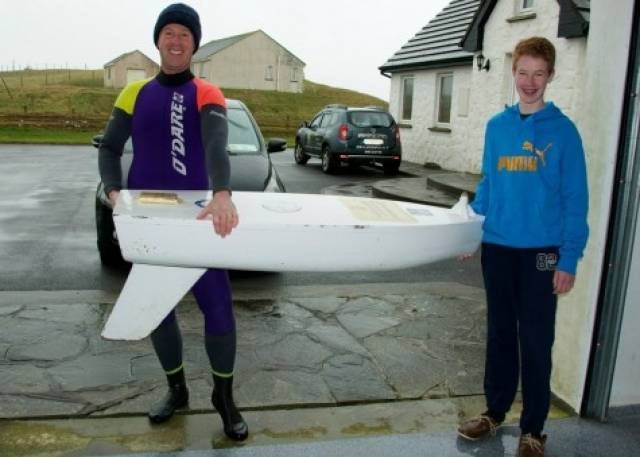#CoastalNotes - An American college's unmanned research vessel has been found on the shores of a Connemara island some eight months after students put it to sea 6,000 miles across the Atlantic in North Carolina.
As Port City Daily reports, the Cape Fear Community College (CFCC) vessel, appearing like a miniature sailboat, was discovered recently with its mast broken off on the coast of Illaunurra by kayaking father-and-son duo Keith and Graham Roberts.
Inside the boat, they found instructions on who to contact if it were recovered – which is how CFCC marine science teacher Jacqui Degan and her class learned the fate of their project.
Marlin Spikin’ Miller, as the boat was named, is one of two fibreglass boats kitted out with transmitters that the students set adrift south of Wilmington, North Carolina.
And that it survived its long-distance journey over many months relatively intact is a testament to the college's boatbuilding students, who collaborated with the science department on the project
Port City Daily has more on the story HERE.
































































